How to win the Ryder Cup: Star power, perfect pairs and Europe’s ‘guru’
Former captains Paul McGinley and Nick Faldo reveal the keys to success – and failure – at the Ryder Cup ahead of the battle between Europe and USA in Rome this weekend
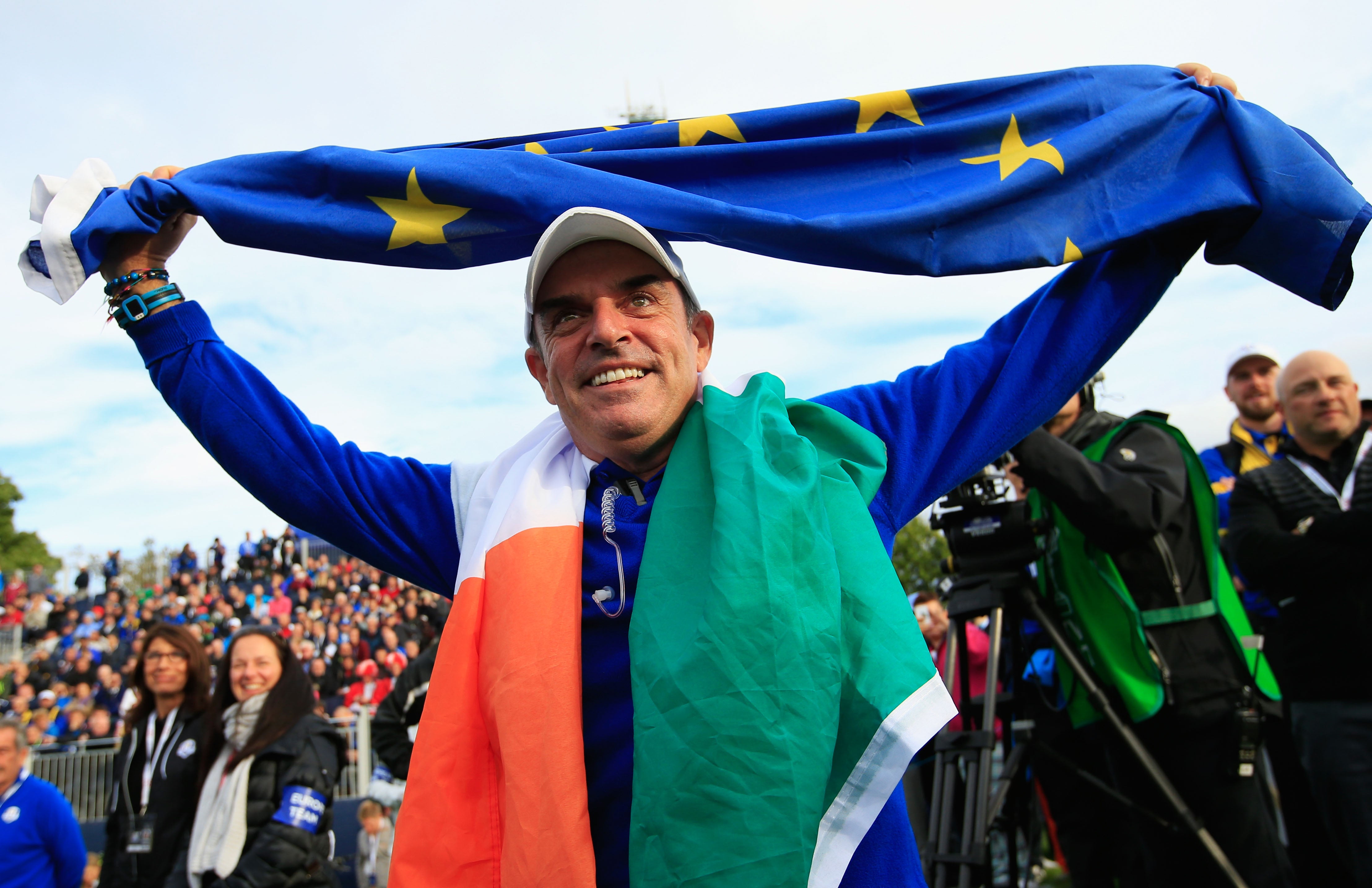
How do you win the Ryder Cup? The simplest answer is that there are 28 points on the line and once you’ve won 14.5 of those, you’ve won the Cup. The Americans only need 14 to draw and retain the trophy in Rome this weekend.
But there are many different ways to get there. Europe outsmarted the US at Gleneagles and wanted it more at Medinah. The Americans blasted Europe away at Hazeltine and humiliated them at Whistling Straits.
Much of the Ryder Cup’s beauty is in the format, with paired foursomes and fourballs on Friday and Saturday before the Sunday singles, which throws up all manner of opportunities to strategise, and to overthink. And although the three-day event can often seem like a series of wild and unpredictable shifts in momentum, there are some key tenets to victory.
The Independent spoke to 2014 winning captain Paul McGinley, and Europe’s second-highest point scorer Nick Faldo, to reveal how it’s won.
Have the best players
This might seem an obvious point but it is one worth making: amid all the excited talk of parings, course setup, captaincy and the other Ryder Cup hoopla to be indulged below, it is useful to remember that the team with the best golfers tends to win.
Strategy and spirit can only get you so far in the Ryder Cup without the best players, and the US often have a deeper well to choose from. That is certainly the case this time around, with an average world ranking that is significantly higher than Europe’s. The US have a combined 15 majors titles between seven players, beating Europe’s tally of nine from five players. Both teams have an average age of 30 but America’s range is tighter, with more players at the peak of their powers.
That being said, there have been four consistently outstanding players in men’s golf over the past 12 months and Europe have three of them in Rory McIlroy, Jon Rahm and Viktor Hovland (the other being America’s world No 1 Scottie Scheffler, with Brooks Koepka getting an honourable mention). In an event where the best players play the most matches and carry the biggest burdens, that star power will be crucial.
And what’s more, the home players are in form. The lowly ranked Ludvig Aberg won the European Masters last month, while fellow rookies Bob MacIntyre and Nicolai Hojgaard have an Italian Open victory on their CV at this Ryder Cup course, Marco Simone Golf Club.
Nick Faldo, one of Europe’s greatest ever golfers, believes all that momentum stands Europe in good stead. “Out of Zach Johnson’s picks, there’s really only Koepka who you deem as solid solid. [Sam] Burns, [Rickie] Fowler, [Collin] Morikawa, [Jordan] Spieth and [Justin] Thomas are all a little bit… running hot and cold.
“I’ve been to Ryder Cups playing great and I’ve been to Ryder Cups playing poorly, and boy you do not want to be at the Ryder Cup if you are not 100 per cent sure of your game, because if you haven’t brought it, you’re not going to find it that week. You better bring your game because it’s the ultimate microscope.”
Verdict: The US have the better players, but Europe have some reliable stars and plenty of recent form to call upon. The gap in quality is certainly nowhere near as wide as it was two years ago when Europe were crushed at Whistling Straits.
Nail your pairings
Pairings on the first two days fall into two categories: foursomes (sometimes called alternate shot, where two teammates play one ball, taking turns to hit a shot) and fourballs (sometimes called better ball, where each player plays their own ball and the best scorer wins the hole for their team).
Finding the right blend is critical.
“It’s hugely significant because the players are not used to playing with a partner,” says McGinley. “You’re taking them out of their environment of what they do 51 weeks a year, and throwing them together in a Ryder Cup. So it’s not a question of ‘off you go’ – you can get a distinct advantage [with the right pairings].”
In foursomes, the alternating nature of the tee shots offers up a chance to strategise. For example, at Marco Simone Golf Club this week, three of the longest four holes are even numbers (eight, 12 and the monstrous 18th), whereas three of the four par-threes fall on odd numbers (holes seven, 13 and 17). So, pairing a booming driver like Sepp Straka to tee off on the even holes with a renowned iron player like Justin Rose for the odd holes could yield good results.
That being said, every player can drive the ball pretty far these days. “You don’t excel in this game unless you hit the ball 300 yards plus, and every one of the European players do that,” says McGinley. “When I was captain you had Rory McIlroy to Graeme McDowell, and that was a 40-yard disparity. You don’t really have that now.
“I think now it’s more about blending personalities, and it’s important to get a good energy and vibe among a pairing.”
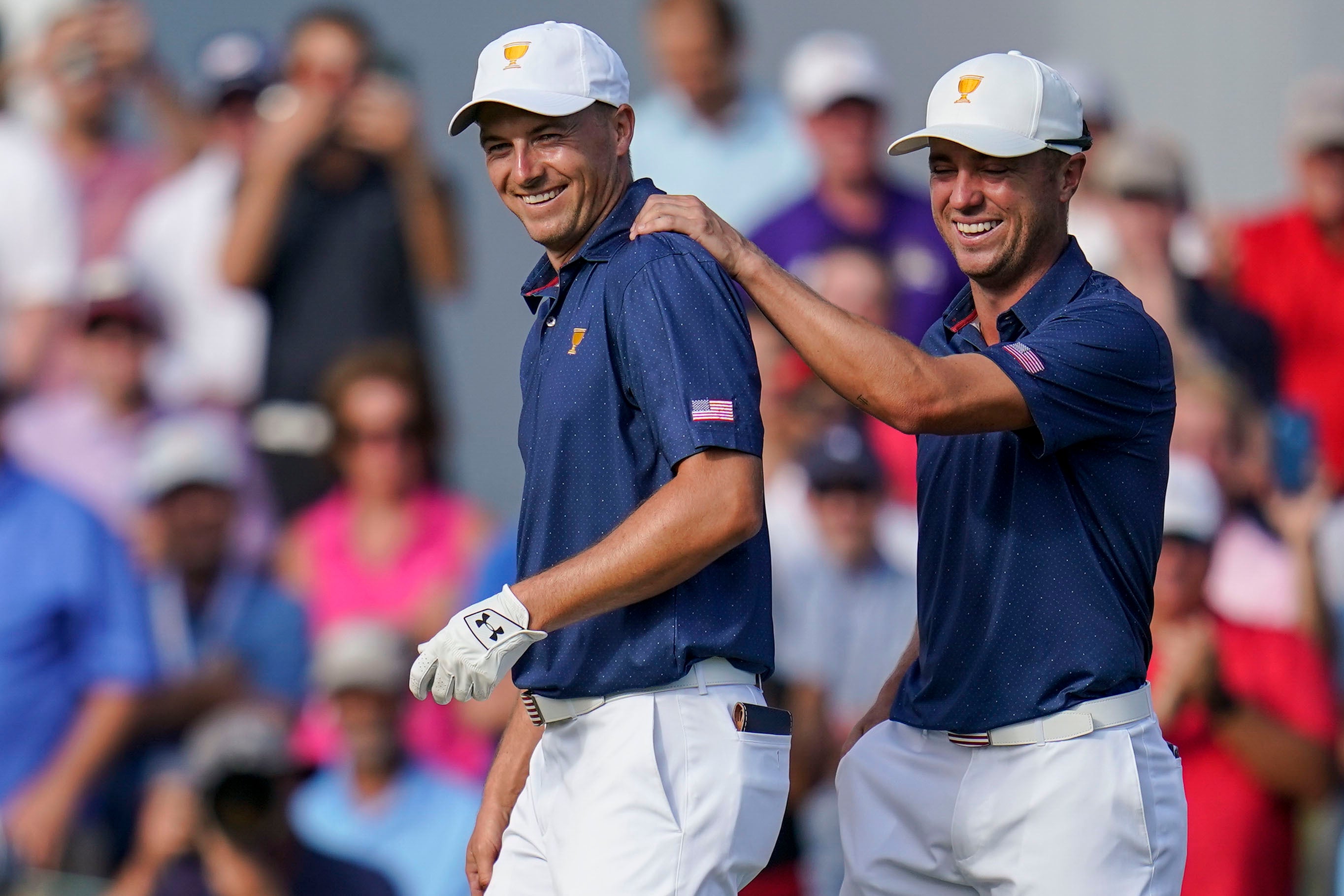
The US have a slight advantage here in that they have some established connections, most notably best friends Thomas and Spieth, and the successful dovetailing of Xander Schauffele with Patrick Cantlay.
Europe have plenty of natural combinations, though. Norway’s Viktor Hovland talked interestingly about his relationships with his fellow Scandinavian players, Sweden’s Ludvig Aberg and Denmark’s Nicolai Hojgaard.
“Swedish is very tough for me to read but when we speak with each other it’s very easy. Even though they are from a different country, Ludvig and Nicolai, we have a very similar culture. That just makes it a little bit more comfortable on the big stage.”
Verdict: The US have the more established pairings while Europe are a team in transition, building new partnerships with some talented youth.
Lean on experience
Europe have slightly more Ryder Cup experience and that is down to two players: Rory McIlroy and Justin Rose. They’ve played more than 50 matches in this event and that experience will be invaluable in the more tense and stressful moments over the three days. All these players make their living playing stroke play, so it is vital to understand what it takes to go toe-to-toe with an opponent over 18 holes of match play.
That being said, the US players have a better collective record in Ryder Cups. The last one was at home at Whistling Straits, where the US won comfortably, which skews those records a little; and perhaps the experiences of Matt Fitzpatrick and Viktor Hovland, who have never won a match, will prove to be important motivating factors.
And experience isn’t everything. In each of the past five Ryder Cups, rookies have combined to record a winning total score.
Verdict: Europe have a little more experience but the Americans have enjoyed more success, on the whole. It’s pretty even.
Seize home advantage
It is no coincidence that the US haven’t won the Ryder Cup on European soil for 30 years. Home advantage matters.
It brings into play three key things: the first is course setup. The Ryder Cup has a long history of collusion between home captains and greenskeepers. In 2016 at Hazeltine, the US tripled the safety of the first cut of rough from 5ft to 15ft, then slashed the thickest grass down to two inches. It meant their big bombers – JB Holmes and Dustin Johnson – could let rip, free of punishment for missing the fairway, and it helped them to a commanding 17-11 win.
The opposite has often been true for Team Europe, who produced a driver-killing course at Le Golf National in Paris in 2018 with plenty of treacherous rough, and won convincingly.
As Lara Arias, the head groundskeeper at Marco Simone, told The Independent earlier this month: “The objective when the Ryder Cup is in Europe is for thick rough to be a penalty. We are going to set up the golf course to help the European team. This is part of the tournament. When they see the golf course, even the American team will know that it is better for Europe.”
It is not quite that simple this year, however. The lines of division between the US and European golf are not as clear as they once were, and Ryder Cup-winning captain McGinley has a warning.
“The course will be a tough setup because our players do seem to play better on tougher setups,” he says. “But we’ve got to be careful that we don’t outsmart ourselves. Because, if you look at the statistics of our team, we’re as long and as wild as the Americans are. We’re very similar in terms of ability off the tee now, even from two years ago, or even from four years ago, in France. Our team has evolved to have more big hitters.”
The second key benefit of home advantage is course knowledge. Scotland’s Bob MacIntyre won the Italian Open at Marco Simone last year, beating Ryder Cup teammate Matt Fitzpatrick in a playoff. In 2021, fellow Team Europe rookie Nicolai Hojgaard edged out another teammate this week, Tommy Fleetwood. They know the pitfalls better than the Americans, so the theory goes that the greater the punishment, the greater Europe’s advantage.
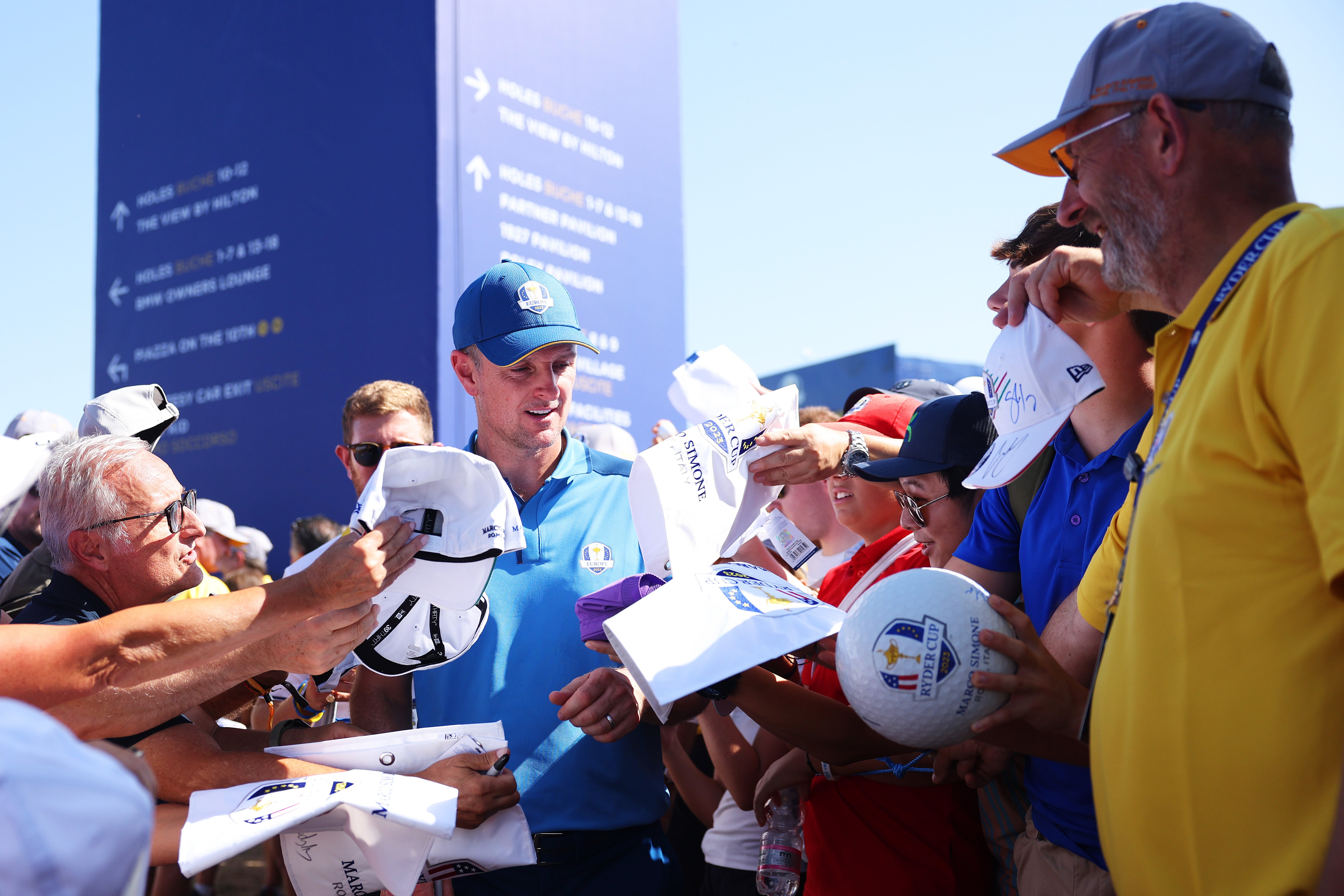
And the third factor is the crowd. Around 40,000 spectators will be let in each day, and they will create one of the most fierce atmospheres in sport.
“It’s very intimidating, playing away from home,” says McGinley. “The crowd will be very energetic here, because Covid didn’t allow them to travel to Whistling Straits two years ago. We saw what happened in France, the place lit up, became very intimidating for the players from America, and they didn’t perform.”
Verdict: The setup may suit Europe slightly more than the Americans, and there certainly is some extra course knowledge in the home camp. But it is the eager, well-lubricated crowd that might prove to be a real weapon in Rome.
Cool captaincy
The captain’s influence can be a little overstated at the Ryder Cup, but they do play an important role in setting the tone for the team. As well as being that presence steering the ship, they can have an impact behind the scenes, giving team talks, bringing in motivational speakers and helping to control emotions in the changing room.
“I made a big point of not engaging at any stage with the players during play,” says McGinley. “My job was more strategic – more of a manager than a coach.”
McGinley is full of praise for the way Donald has handled the situation thus far.
“I think of all the players in that era of success that we had in Europe, Luke has the best Ryder Cup record at 70 per cent (matches won). So this guy knows what the Ryder Cup’s about. He’s performed brilliantly in teams, and he should have a very good instinct for what to do.”
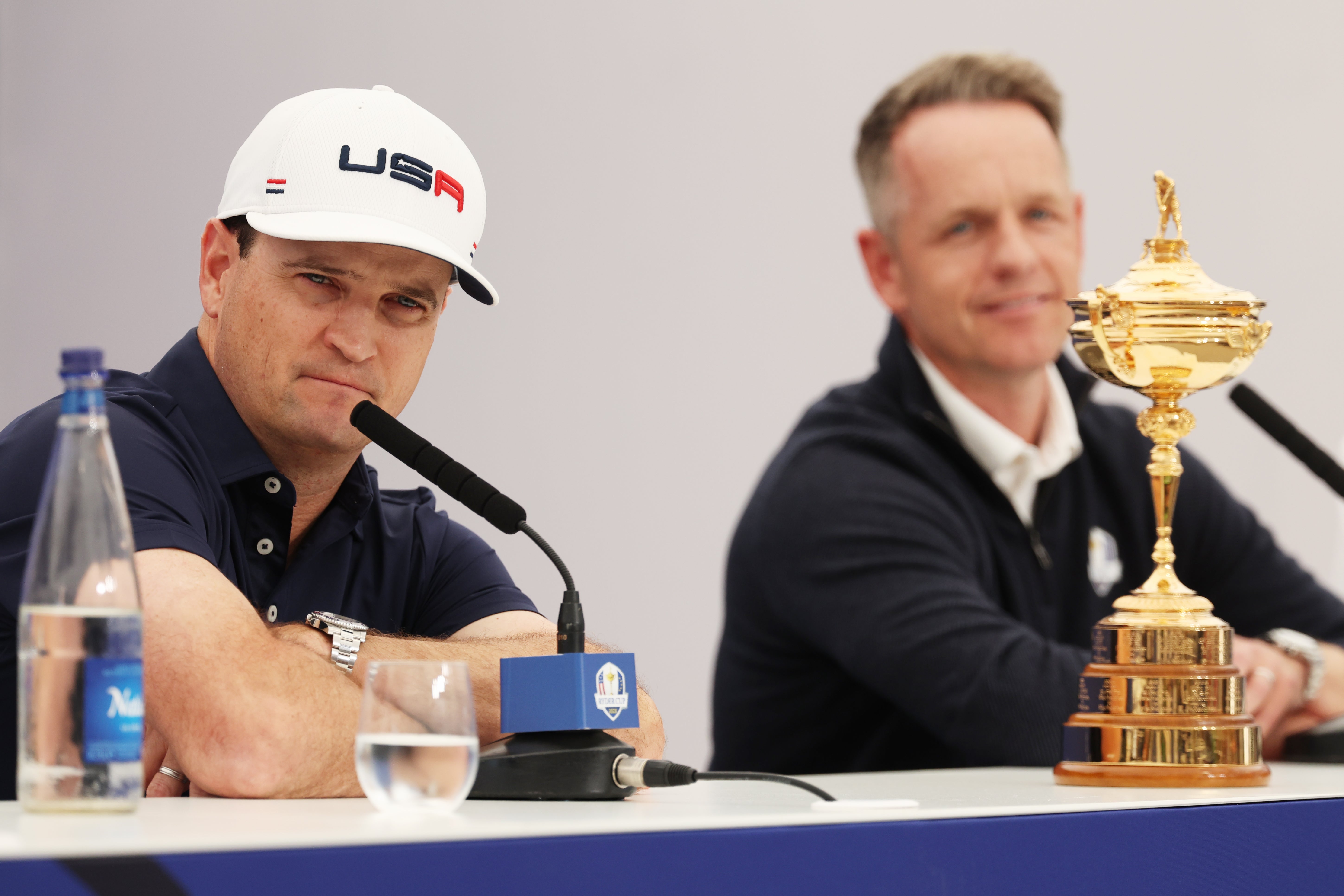
American player and commentator Rich Beem is equally effusive about US captain Zach Johnson.
“I would probably put him in the same vein as Steve Stricker where he is the captain out front,” Beem says. “He’s the figurehead, but he’s also surrounded himself with a lot of really good vice-captains that have a lot of experience. So he’s going to lean on their input and what they see and hear and feel.”
Verdict: Both captains have proved calm and collected in the build-up. The true test of their captaincy will be how they react as the Ryder Cup unfolds.
Embrace the numbers
Golf is a numbers game, and increasingly it is being played on spreadsheets as much as fairways and greens.
Here, Europe think they might have an advantage via the insight of Edoardo Molinari. The Italian not only knows this part of the world very well, and has Ryder Cup-winning experience in 2010, but more importantly is building a reputation as a stats expert who many of the top PGA Tour players rely on for insight into their game.
“The guru?,” smiled McIlroy when asked about Molinari recently. “He’s delved really deep into the stats in terms of pairings for fourballs, for foursomes, course setup, what our team as a whole does well and what their team does well; how can we set ourselves up for success in whatever way possible. He also has formed a very close relationship with some of the players over the last few years. There’s a big left of trust that he obviously knows what he’s talking about, and what he’s giving us is good information.”
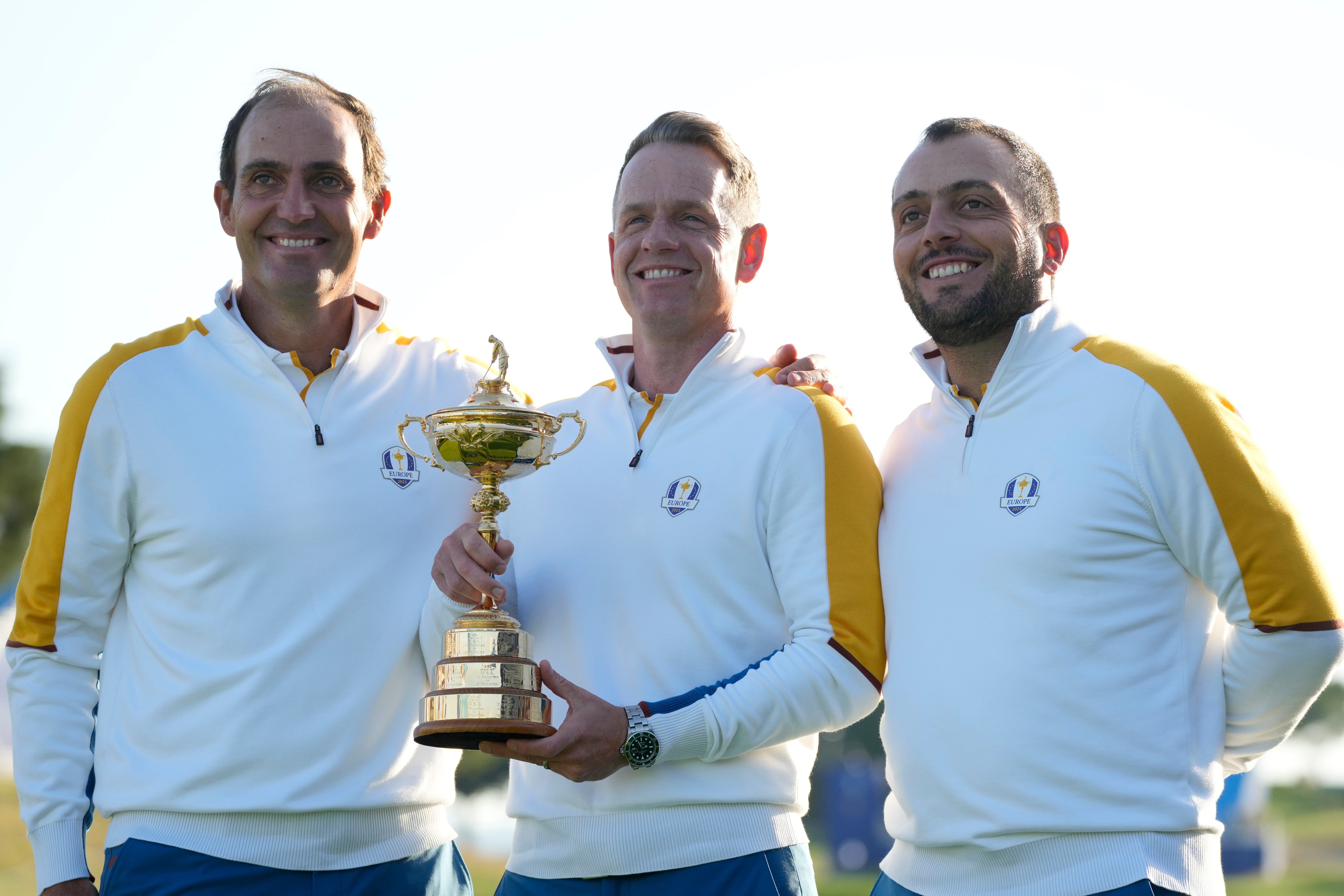
Donald believes Europe have a strength in foursomes, which is why he has chosen it for the morning format. “We feel like as a team, statistically we are stronger in foursomes within our team than we would be in fourballs. Why not get off to a fast start?”
The US will have access to plenty of data too, but a lot of Molinari’s stats are said to be bespoke for Europe’s Ryder Cup needs. He has collected detailed data over recent Italian Opens at Marco Simone in a bid to understand the sort of players that thrive, the right shots to play on each hole, the mostly costly areas to miss and much more.
Verdict: Europe may have the edge on Microsoft Excel. Just how many points that will translate to on the course is impossible to say.
Bring your Sunday best
For all the talk about pairings, the Sunday singles are critical: 12 matches of head-to-head combat when you cannot hide your strugglers or lean on your star players – everyone plays for one crucial point. The Ryder Cup is almost always still in the balance on that final morning, with 43 per cent of the total points to play for. And history suggests it is critical: nine of the past 10 Ryder Cups have been claimed by the team who won the Sunday singles.
Verdict: Like this year’s Ryder Cup, it’s in the balance.
Watch the Ryder Cup from 29 September live on Sky Sports Main Event, Sky Sports Golf, and NOW
Join our commenting forum
Join thought-provoking conversations, follow other Independent readers and see their replies
Comments
Bookmark popover
Removed from bookmarks